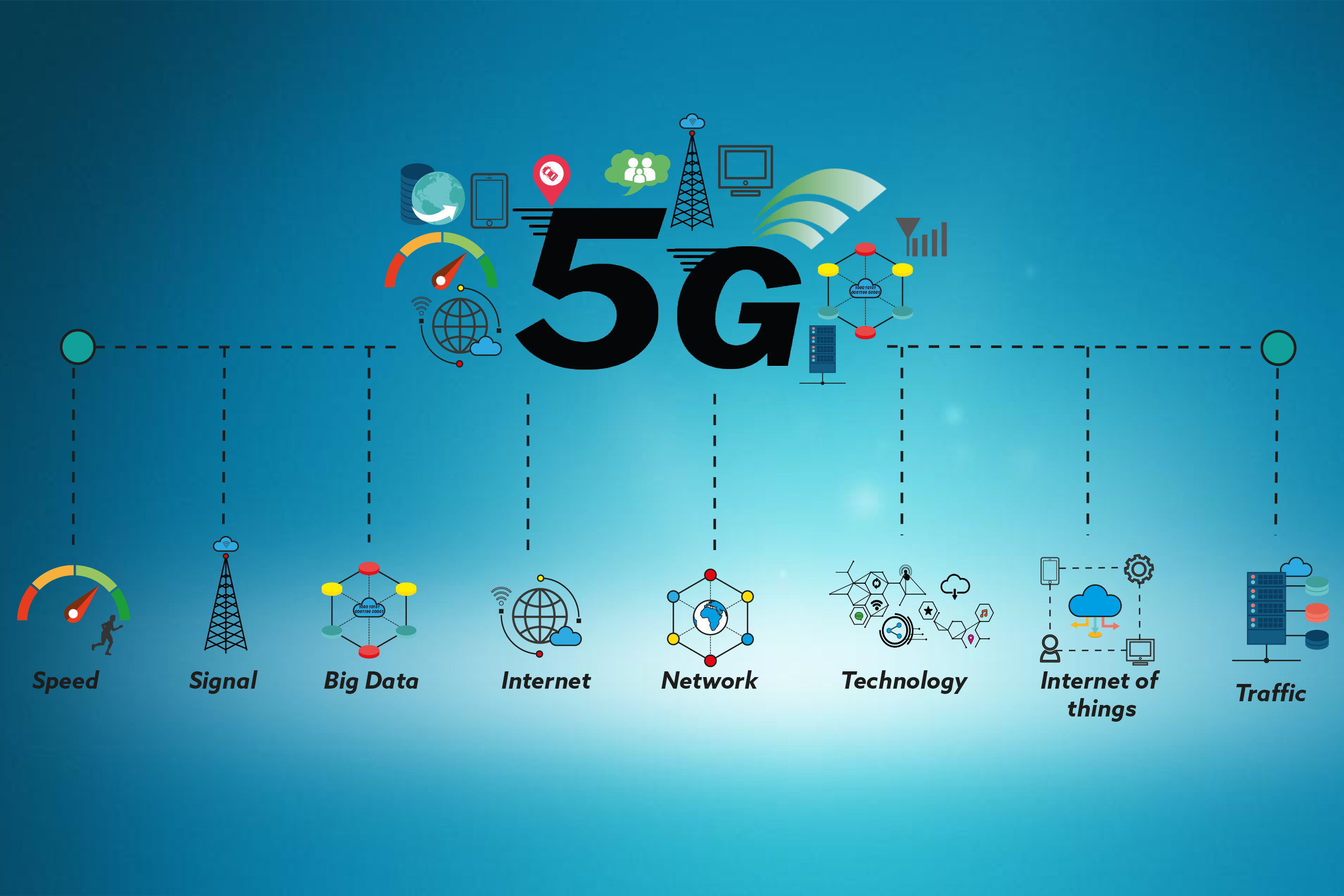5G Technology and the Future of Communications: How It Will Transform the Global Economy, Health, and Digital Connectivity
Technology
2025-10-16 11:18:50
👁️ 3 views

5G technology is seen as a revolution in mobile communications, promising to transform not only the way we communicate but also many other sectors of the global economy. From ultra-fast internet speeds and low latency to the ability to connect millions of devices simultaneously, 5G promises to redefine the digital, economic, and social landscape.
What is 5G and How Does It Work?
5G, or the “fifth generation” of mobile networks, is a significant step forward compared to previous technologies like 4G, offering faster speeds, lower latency, and much greater connectivity capacity. The 5G network will deliver download speeds of up to 10 gigabits per second – around 100 times faster than 4G. This means not only uninterrupted high-quality video streaming but also the ability to download large files in seconds.
The main innovation of 5G lies in its millimeter-wave broadband technology and network slicing, which will allow service providers to create dedicated networks for different types of users and applications.
How Will 5G Change the Global Economy?
Increased Productivity:
5G technology will significantly improve productivity in sectors like manufacturing, logistics, and agriculture. Enhanced connectivity will enable the use of advanced Internet of Things (IoT) solutions, which will optimize processes and reduce operational costs. For example, smart factories will become much more efficient, capable of managing automated equipment and machines that communicate with each other in real time.
Innovations in Transportation and Logistics:
5G will enable the development of autonomous vehicles and smart transportation systems. Self-driving cars will be able to communicate with one another to avoid accidents and optimize traffic flow, while deliveries will become much faster and more accurate with the use of drones connected to 5G networks. Estimates suggest that implementing these technologies will significantly reduce transportation costs and improve global supply chain efficiency.
Creation of New Jobs:
5G technology will drive job creation in innovative sectors, including software development, data management, and network infrastructure. Additionally, it is estimated that the implementation of 5G networks could increase global GDP by up to $1.3 trillion annually by 2035, according to a report by IHS Markit.
Development of New Industries:
Many industries will evolve due to 5G, including virtual reality (VR) and augmented reality (AR), which will transform video games, tourism, education, and healthcare. Also, telemedicine will become much more accessible, and smart health devices such as wearable sensors will continuously monitor patients’ health status.
Impact of 5G on Health
Telemedicine and Digital Health:
One of the most important changes that 5G will bring to healthcare is the ability to perform high-quality remote consultations. 5G will enable real-time, high-definition video transmission, which will significantly improve the quality of virtual consultations. Doctors will be able to diagnose and treat patients from any part of the world, and remote surgery will become much more feasible due to extremely low latency.
Real-Time Health Monitoring:
Wearable devices that constantly monitor health, such as smartwatches or fitness trackers, will become more precise and efficient with 5G networks. These devices will transmit medical data in real time to doctors or hospitals, improving the management of chronic diseases such as diabetes or heart disease.
Improved Diagnostics:
5G will enable better communication between medical equipment and hospitals, allowing rapid transmission of diagnostic data, imaging, or genetic tests. As a result, diagnoses will be faster and more accurate, and treatments will be much more personalized.
Impact of 5G on Digital Connectivity
Massive Internet of Things (IoT):
One of the biggest advantages of 5G will be its ability to connect billions of IoT devices, from smart thermostats and refrigerators to traffic lights and environmental sensors. This will revolutionize smart cities, making them more energy-efficient and improving public safety by optimally managing resources.
Improved Internet Access:
5G will address digital disparities by providing high-speed internet to rural or remote areas where traditional cable or fiber optic infrastructure is unavailable. It will enable online education and healthcare services for communities that previously lacked access to these services.
Augmented and Virtual Reality in Everyday Life:
5G will enable augmented reality (AR) and virtual reality (VR) applications to become an integral part of daily life. From high-quality gaming to immersive learning experiences, these new technologies will open doors to new ways of interacting with the digital world.
Challenges and Risks of 5G Implementation
While the benefits of 5G are significant, there are also major challenges. Firstly, implementing the infrastructure for 5G requires massive investments, and some countries face economic obstacles. Additionally, there are concerns about data security, given the massive amount of data that will flow over 5G networks, as well as the risks related to privacy and cybersecurity.
Another controversial aspect is the potential health effects of radiation emitted by 5G networks. Although most studies suggest that 5G radiation is much less harmful than that of previous networks, there are persistent concerns about long-term exposure.
Conclusion
5G technology promises to profoundly transform the global economy, health, and the way we interact with digital technology. From boosting productivity and innovation in transportation to changing the way we do business and take care of our health, 5G will open up new possibilities. However, to fully maximize the benefits, we will need to address the challenges of implementing and regulating this advanced technology.
